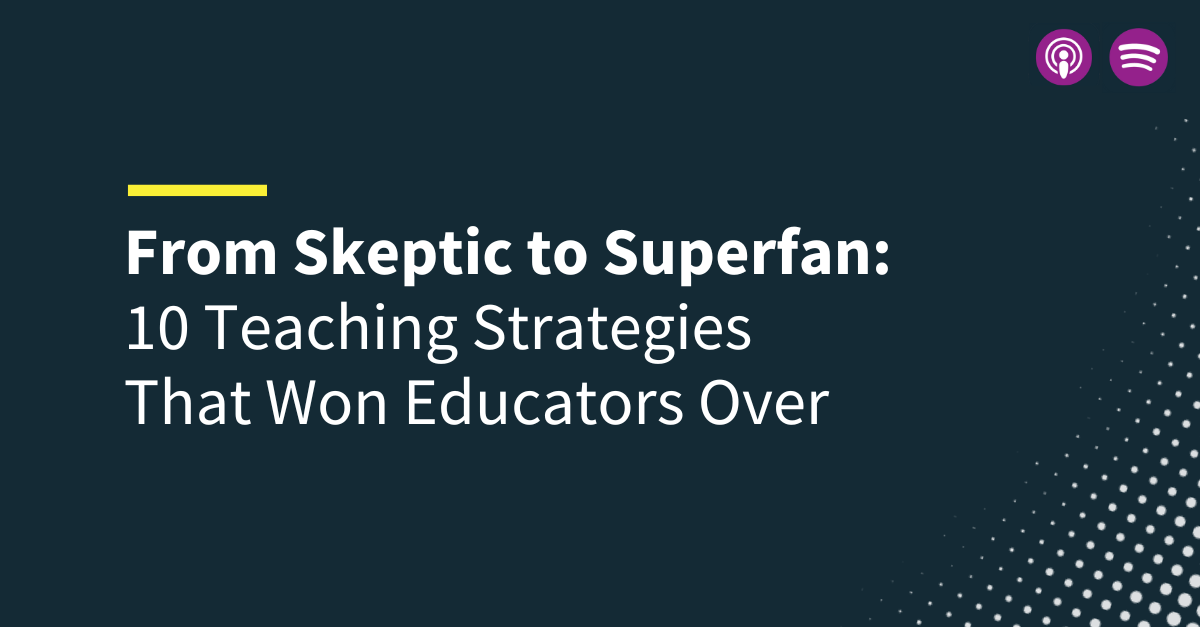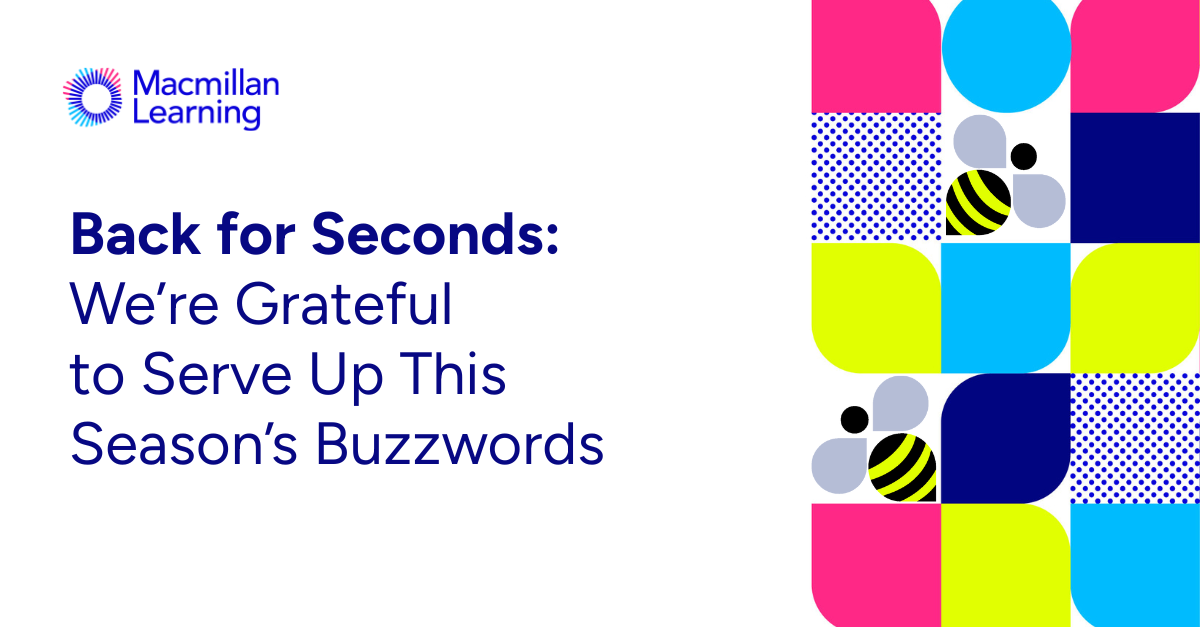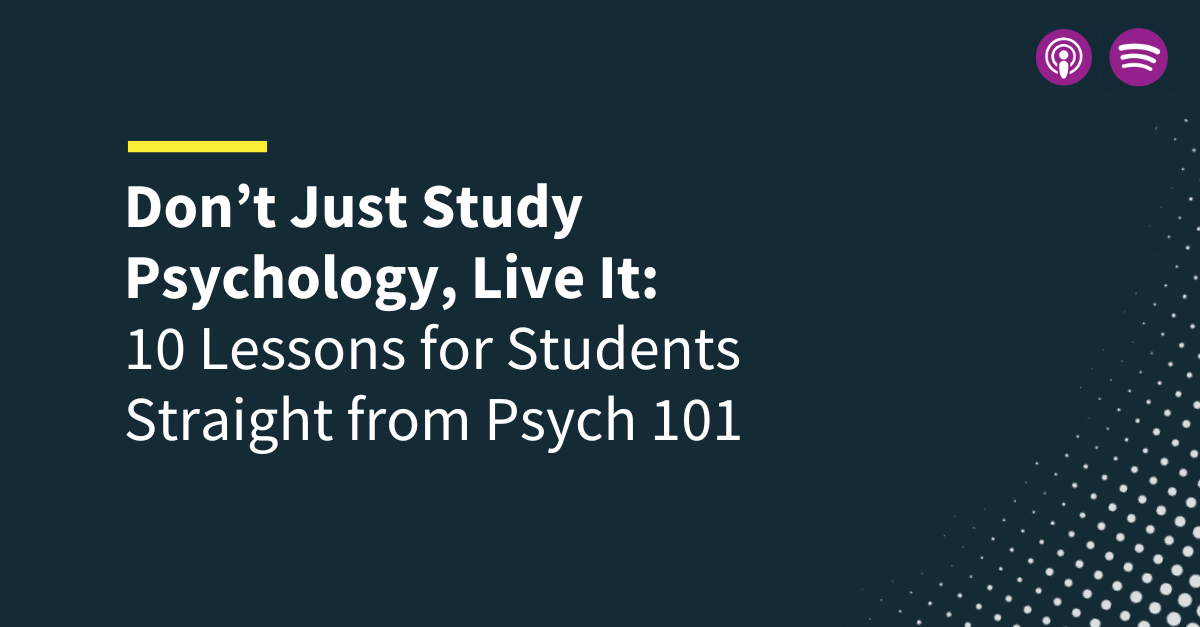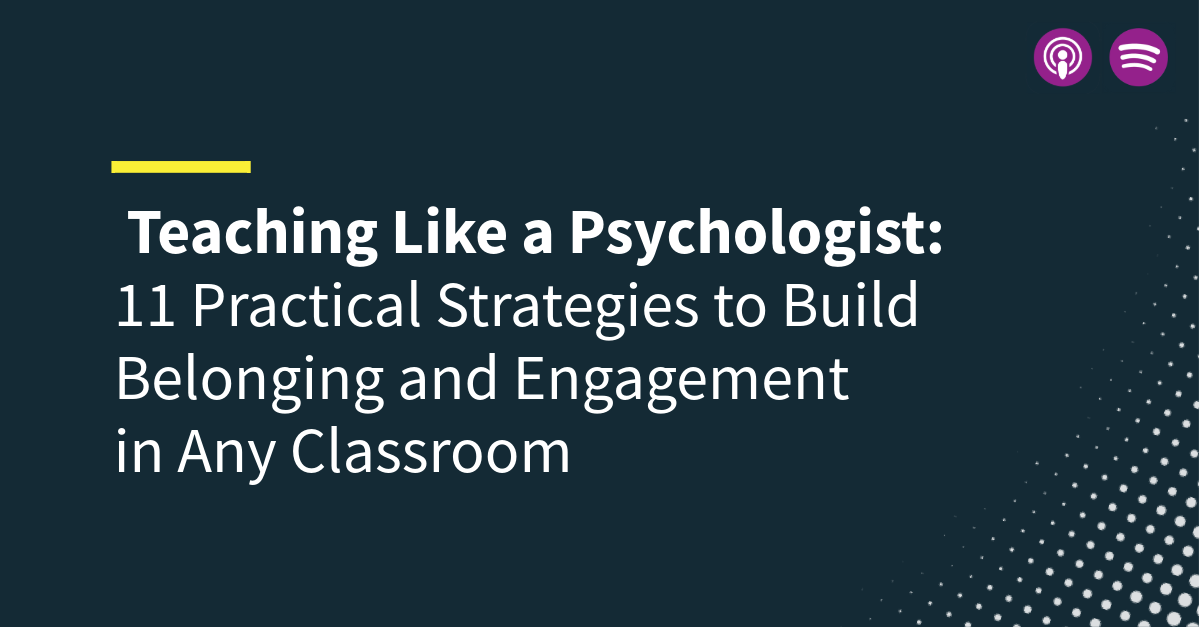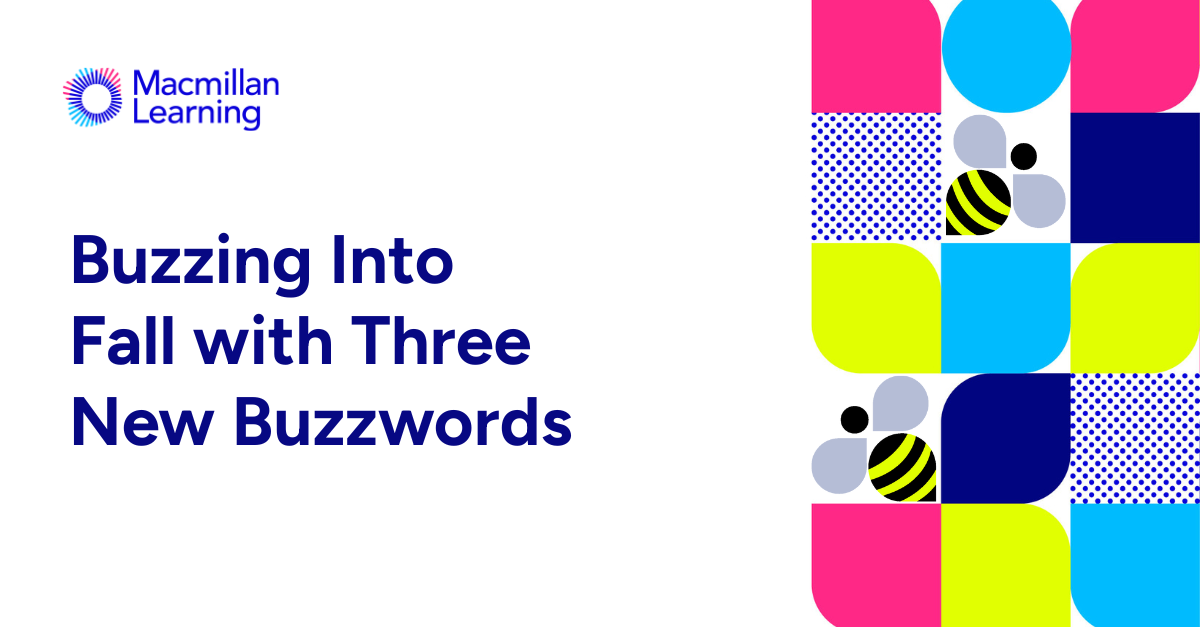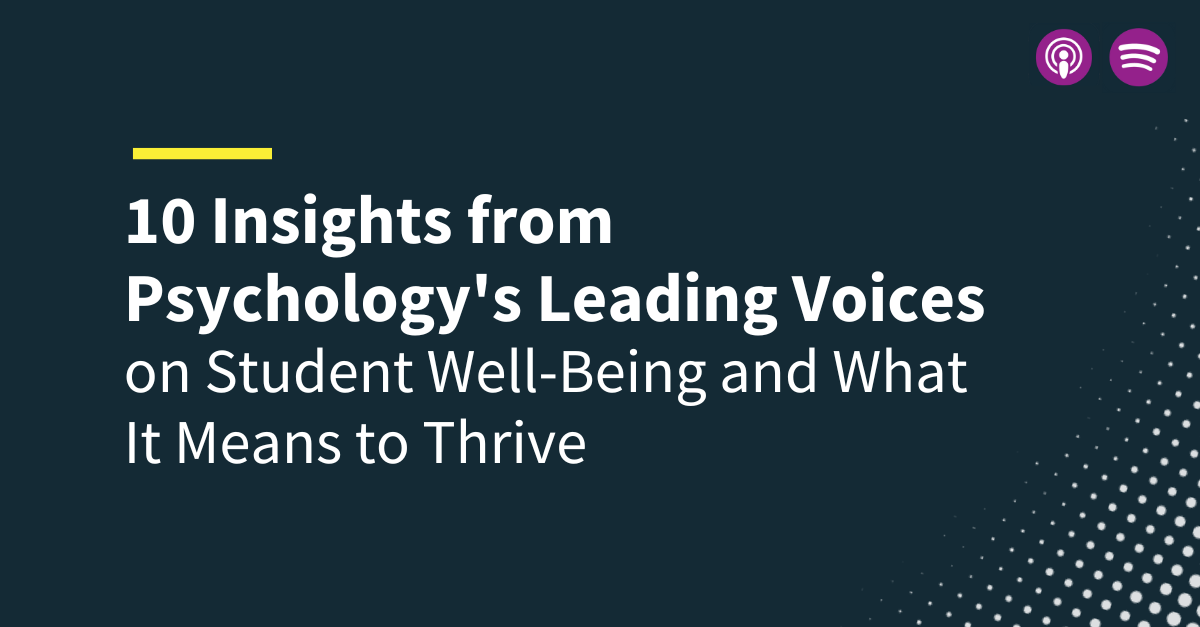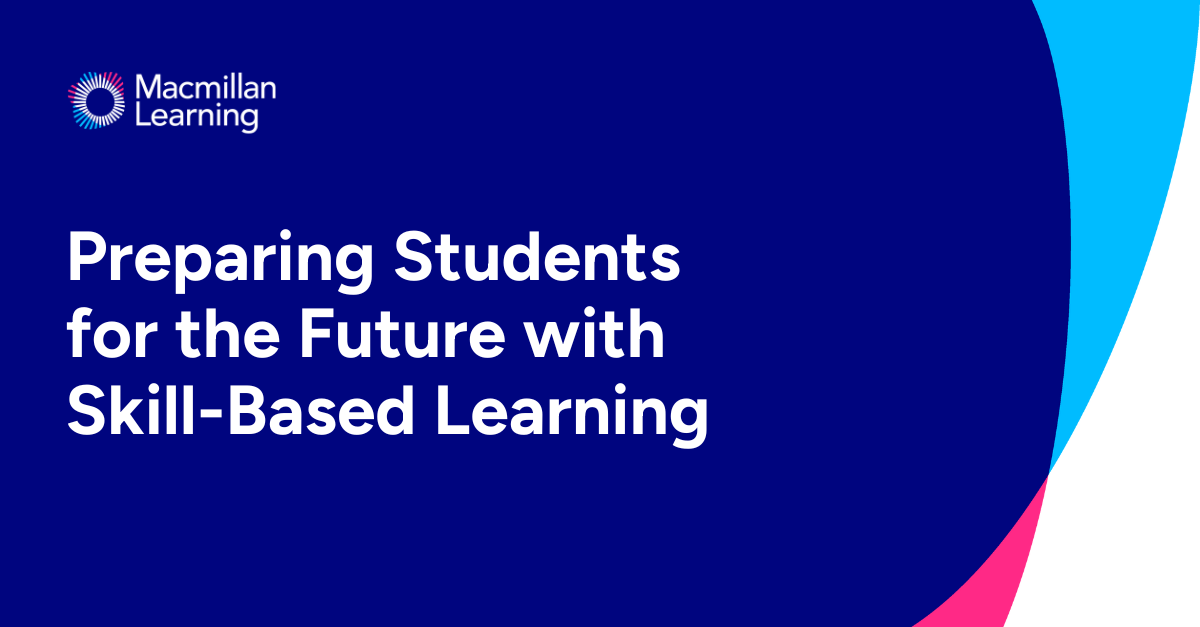-
About
Our Story
back- Our Mission
- Our Leadershio
- Accessibility
- Careers
- Diversity, Equity, Inclusion
- Learning Science
- Sustainability
Our Solutions
back
-
Community
Community
back- Newsroom
- Webinars on Demand
- Digital Community
- The Institute at Macmillan Learning
- English Community
- Psychology Community
- History Community
- Communication Community
- College Success Community
- Economics Community
- Institutional Solutions Community
- Nutrition Community
- Lab Solutions Community
- STEM Community
- Newsroom
- Macmillan Community
- :
- Newsroom
- :
- Learning Stories Blog
- :
- Learning Stories Blog - Page 2
Learning Stories Blog - Page 2
Options
- Mark all as New
- Mark all as Read
- Float this item to the top
- Subscribe
- Bookmark
- Subscribe to RSS Feed
Learning Stories Blog - Page 2
Showing articles with label AI.
Show all articles
Macmillan Employee
01-03-2024
06:13 AM
AI has the potential to transform education by improving students' learning experiences and bolstering their critical thinking skills. This topic is of particular interest to many instructors and surfaced many times during “The Importance of Truth, Honesty, and Pedagogy in an AI World” webinar, which featured Macmillan Learning CEO Susan Winslow. t that
For some instructors, AI raises the concern that LLMs (Large Language Models) will serve as a shortcut to students, hindering the development of their critical thinking skills, including problem-solving and writing. However, that doesn’t need to be the case. One instructor noted during the webinar: “If the gauntlet is just to submit a written paper, we’ve missed the mark of what and how to teach.” He said that the goal instead should be to encourage students to critically navigate life. He added that this would require teaching in a way that helps students to recognize when or why to use these LLMs and, in turn, help them better understand the world around them.
From educators becoming AI learners themselves, to the crucial role of teaching responsible AI use, there are many different ways that it is showing up in the classroom. Before the start of the Spring term, here are seven ways that AI can impact students’ critical thinking skills.
Teaching Responsible Use: A crucial aspect of fostering critical thinking in an AI-driven world is teaching responsible AI usage. AI is undeniably a powerful tool, and one instructor on the webinar stated that "it is on us to teach responsible use." By imparting the importance of using AI consciously and ethically, instructors can help equip students with the skills needed to make the best possible choices both in and out of the classroom.
Understanding AI Limitations: Critical thinking involves not only leveraging AI, but also understanding its limitations. Knowing this helps students to make informed decisions about when and how to use AI as a resource. In addition to helping foster a deeper understanding of its role in their learning journey, students can also learn the kind of human touches that AI simply cannot replicate -- which they’ll need to know as they consider their future careers. According to one instructor, part of teaching responsible use is letting students know "what AI can do well, what it can't, and what do WE add that AI can't?"
Mitigation, Not Elimination: Because challenges such as plagiarism may never be fully eliminated, some instructors support the idea of "mitigation" instead. One instructor noted, “as educators, we have the duty to help students navigate the gray areas and use AI to improve, not undermine their writing.” To that end, instructors can encourage students to view AI as a means to expedite research, fix grammatical errors, or enhance their understanding of a topic. By steering students away from the temptation to copy and paste, educators help students leverage technology to augment their learning rather than supersede it.
AI's Role in Feedback: Constructive feedback is paramount to learning, but not all students readily embrace it. Introducing AI into the feedback loop can transform this experience and make it more positive, engaging and effective for students. As students interact with AI-generated feedback that’s personalized to them, they are prompted to reflect critically on their work, fostering continuous improvement and enhancing their overall critical thinking abilities.
Evolving Classroom Dynamics: AI introduces a level of scalability and personalization that can change classroom dynamics. By tailoring learning experiences to individual student needs and pace, students can engage in a more participatory learning process tailored to their abilities. One instructor noted: “if we allow for AI to take care of most of the basic education students need, then brick and mortar schools have the opportunity to become a place for flourishing of project-based learning, social and cultural development, and experiential education-- all of which will still need us teachers to facilitate!"
AI as an Enhancer of the Learning Process: Although AI cannot replicate human touch or original ideas, it can contribute significantly to the learning process. It can provide explanations, aid comprehension, and offer a platform for students to explore and understand complex topics. For students who may feel uncomfortable asking repetitive questions in a traditional setting, AI can act like a tutor and serve as a reliable and accessible resource. It democratizes education and becomes what CEO Susan Winslow refers to as “the great equalizer.”
Educators as AI Learners: When it comes to AI, instructors are also students. Many are actively engaged with AI technologies, continually experimenting with different approaches to harness its power in and out of the classroom. This iterative process of improvement ensures that they’re well-equipped to guide their students as well as take advantage of the latest advancements. As they adapt and refine their approaches, they become role models for students in embracing technology to help augment their critical thinking abilities.
AI in education represents more than just a technological advancement; it is a paradigm shift that empowers students to adapt, explore, and refine their critical thinking skills. It can bring about a significant shift in education, creating new landscapes for students to adapt, explore, and enhance their critical thinking skills. As educators embrace AI as a tool for enrichment, they pave the way for a more engaging, equitable, and intellectually stimulating educational landscape.
If you're curious about the intersection of education and AI, check out additional insights from instructors on Supporting Academic Integrity in an AI World or check out Five Things Instructors Should Consider When Assigning Homework in a World with ChatGPT.
... View more
Labels
-
2024
-
AI
0
0
23.8K
Macmillan Employee
12-19-2023
06:24 AM
Since its explosion over the last year, AI is no longer a distant, futuristic concept. It's here, woven into our daily lives in ways we might not even realize. From voice assistants guiding our mornings, to algorithms helping us choose what to watch or buy, AI is everywhere, quietly shaping our world. But how do we prepare our workforces for this new era?
Macmillan Learning CEO, Susan Winslow, recently described her AI journey akin to processing the stages of grief; I see some of our teams having the same experience - denying the impact AI will have on their workflows, hoping it will go away, or angry at being asked to evaluate processes that seem fine already. It is clear to me, however, that we all need to embrace the AI learning curve. That extends beyond our tech talent and coding gurus and starts with seeing AI not as a replacement for our jobs, but an opportunity to enhance human potential.
At Macmillan Learning, we are providing our teams with foundational courses to get them started, including content explaining what AI is to understanding the various ways that AI can be leveraged as a learning tool. We’ve been training best practices of good prompting and creating guidelines on how to ensure safety and ethical use along the way. These basics are followed with a challenge for each of us to keep an open mind, take initiative, and experiment.
Our leaders are not exempt from this. It’s proven important for each of us to lead by example, rolling up our sleeves and diving in to set the tone for our teams. I recently took a hands-on approach to testing HR use cases for generative AI and even dug into the development of an employee self-service chatbot. The insights that I have gained from both successes and failures have helped me to communicate, first hand, insights to hopefully make it a little less scary for our teams to take a first step.
But change is hard and saying “this will be a fun adventure” doesn’t always quiet the fears people have about the unknown. That’s why we have to continually remind ourselves that people will always be at the center of successful evolution. AI can handle repetitive tasks, and serve as a great starting point for ideation; but empathy, creativity, and intuition? Those are OUR superpowers. That's what sets us apart from the algorithms.
As a People & Culture leader, I talk every day to our team about jobs, and AI has left a big question mark for a lot of people as they worry about proficiency or replacement. I have told our teams to try not viewing AI as competition, but a collaboration between human ingenuity and AI efficiency that frees us up to focus on what we do best—using our creativity, emotional intelligence, and problem-solving skills. Incidentally, those are the skills I’m leaning into to get the most out of using AI tools too.
Our approach may not be perfect, and I keep reminding myself that it will take resilience to stay energized about the possibilities when advances in tomorrow’s technology require us to retool our thinking all together. I will challenge you, just like our teams, to embrace the potential of AI, learn from it, and together, let's shape a future where technology empowers us to be the best versions of ourselves. As one of our core values reminds: learning is a journey we are on together.
... View more
Labels
-
2023
-
AI
0
0
2,799
Macmillan Employee
11-30-2023
06:35 AM
In a recent Executive Order from the White House on AI, President Biden encouraged the industry to “shape AI’s potential to transform education by creating resources to support educators deploying AI-enabled educational tools, such as personalized tutoring in schools.” We’ve known since research completed in the 1980s that personalized tutoring is significantly more effective than “factory models of education,” and I have spent a good portion of my career considering how human-centered product design and technology can help fulfill the promise of personalized learning.
The time is now. This fall, I’ve watched with great interest and excitement as our teams at Macmillan Learning have tested personalized tutoring with thousands of students in courses in our digital courseware product, Achieve.
Early results indicate that AI-enhanced personalized tutoring positively impacts student engagement and progress, especially at times when they need help with assignments. Without giving answers away, the AI-powered tutor uses socratic-style questions delivered in a chatbot to help guide students step-by-step to the correct conclusion. Importantly, we have seen that whereas students sometimes feel self-conscious asking their instructor or teaching assistants for help, they are open and persistent with the AI tutor, asking questions repeatedly until they gain better understanding.
Faculty have also responded positively, noting that the AI tutor is available late at night or generally when faculty and teaching assistants are not available to answer questions. Because our AI tutor is grounded in the specific Achieve course content from the instructor’s assignment, faculty have reported confidence that their students are receiving better assistance than other online options. While it’s still a bit early for us to understand the efficacy of the AI tutor, we have enough early positive indicators that we are eager to now understand the impact it has on learning. Please stay tuned! AI tutoring is just the beginning of the opportunities in front of us. Imagine a learning environment in which teachers have a learning assistant that knows each student's preferences and levels of preparedness, paces lessons accordingly, and provides timely interventions when needed. Imagine that instructors can intrinsically engage students by framing knowledge acquisition and skill-building in ways that acknowledge the student’s curiosity, their lived experience, cultural background, and personal goals/mission–all while ensuring that students make progress against faculty course outcomes. The promise of AI is that we can support both instructors and students in making learning more deeply personal, accessible, and engaging.
But how do we get there? It may be easy to surmise that with the breathtakingly fast evolution of Generative AI technology the promise of personalized learning assistants will be delivered very soon by large language models. But, human-centered products never result purely from technological advancement–instead, we must roll up our sleeves and intentionally create products that students and teachers find valuable and trustworthy.
One of the most challenging and important problems to solve with AI-enhanced personalized learning is the management and protection of student data privacy and security. In surveys Macmillan Learning has conducted this fall, 63% of students indicated that they have concerns about how data is used, stored, and generated by AI applications and companies. In our fall 2023 AI tutor tests, we have been firmly grounded in the AI safety and ethics principles and processes that we developed with the help of two advisory boards of experts. Good intentions are important, but they’re not enough.
We have been, and will continue, actively monitoring to ensure that data, privacy, and security measures are working as intended. We will continually work with experts to stay current on quickly evolving tools and best practices, and importantly, to implement auditing processes on the AI products/features we’re developing. We are resolute that AI tutors and assistants in our Achieve and iClicker platforms will align with our rigorous human-centered AI ethical principles and processes.
We’ve also heard concerns that the use of AI may create disparities in education, as economically disadvantaged individuals might not have access to the same resources. There's also the risk of AI systems inheriting biases present in their training data, which can also perpetuate disparities. We believe that it's essential to approach the integration of AI in education with an awareness of these challenges and a commitment to use these tools ethically, inclusively, and equitably.
Again, good intentions are important, but not enough. We are working with AI bias experts to determine if we can proactively detect and, when possible, mitigate bias in training data. This fall, we have conducted research specifically with students and faculty at minority-serving institutions to ensure that we acknowledge the needs, questions, and concerns around AI from traditionally underrepresented populations.
As if these substantial challenges are not enough, we also have new AI software infrastructure, QA testing, and monitoring projects to tackle. Every workday feels more full and fulfilling than the day before, but I’ve truly never been more energized in my career in education. I share President Biden’s observation that we have not recently had such a tangible opportunity to fundamentally transform education–and to do so in a way that benefits every learner.
... View more
Macmillan Employee
11-03-2023
06:18 AM
Macmillan Learning recently wrapped up EconEd, our annual economics conference which explores the multifaceted ways that instructors teach college economics. This year’s focus was the topic on everyone’s mind: AI’s impact on education, work and life.
The 2023 conference included a series of webinars from instructors, who also happen to be our Principles of Economics authors. Justin Wolfers’ session discussed the elephant in the room - Assigning Homework in a World with ChatGPT. The Macmillan Learning Principles of Economics author, New York Times Contributing Columnist, and professor of economics and public policy at the University of Michigan spoke about how traditional ways of assessing students are being challenged with the rise of powerful AI tools like ChatGPT.
There aren't always simple solutions when AI tools can not only quickly finish homework assignments and pass exams, but in some cases, can even outperform students or trick instructors into believing generated essays were written by students. At a time when algorithms and automation are reshaping industries, it’s more important than ever that higher education helps equip students with skills that complement AI. This is especially true in an economics course, where students can develop these critical thinking skills alongside an understanding of how AI intersects with economic theories and practices.
Instructors are considering the best ways to restructure their syllabi and assessment methods and, importantly, seeking out the best ways to support students’ ability to succeed both in class and down the road; they're also exploring how they can best account for the presence of AI tools in the class while at the same time encourage academic integrity. Here are five things instructors should consider about homework and assessments in their Economics class.
Whether or Not to Use AI is an Economic Decision for Students
Every decision is an economic decision. Thus, it’s also the case for students deciding whether or not to use an AI like ChatGPT when completing homework or other assessments. Using a cost-benefit analysis framework, students have to weigh the benefits of saving time and potentially getting higher grades versus the costs of getting caught, facing punishment, and missing out on learning opportunities.
The Challenge of Academic Integrity
In our digital-first world, the line between legitimate assistance and outright cheating has blurred. With 35% of students admitting to using online tools during remote exams, educators are challenged to reconsider assessment strategies. Wolfers cautions educators about the dangers of relying solely on detection software to catch instances where ChatGPT or other similar models might have been used to complete assignments.
It’s Time to Rethink Traditional Assessments
ChatGPT's performance varies with question type and subject area. For example, it is very proficient in answering introductory economics questions and scored high on multiple standardized tests related to economics, outperforming many students. ChatGPT achieved an A- in microeconomics and an A in macroeconomics in tests conducted at Harvard. It scored 5 out of 5 on AP Microeconomics and AP Macroeconomics exams, placing it among the top students.
Wolfers argues that to discourage cheating, the goal should be to use questions in a way that makes large language models like ChatGPT less reliable. To that end, ChatGPT struggles more with multiple choice than true/false questions, and it’s not much help with the graphical ones. For instance, when presented with a graph depicting economic trends, ChatGPT couldn't interpret the data as effectively. It also struggled with multi-step questions with interdependent information. While its capabilities are advancing quickly, by delving deeper and focusing on application or critical thinking, educators can make these tools less appealing for cheating.
Leveraging Technology's Double-Edged Sword
Ignoring the growing role of AI in education isn't a solution. While the immediate fear is cheating, ChatGPT and similar models can also be used to enhance educational experiences. For example, ChatGPT can act as a learning companion, answering questions, explaining complex concepts, and providing instant feedback. Wolfers demonstrated an AI tutor designed to help students, but without providing direct answers. The tutor follows a Socratic approach, guiding students toward answers rather than giving them outright.
Make the Content Relevant
Making assessments and content in textbooks more relevant and meaningful to students can motivate them to complete their work. Real-world examples and applications can enhance the learning experience not just by presenting information, but by offering context, fostering critical thinking, and facilitating deep understanding. Interactive experiences, real-world case studies, guided exercises, and opportunities for active learning can differentiate a textbook from mere information.
To that end, the role of textbooks should not just be about information delivery but conceptual organization, rich context, and problem-solving guidance. A good textbook doesn't just present data, but crafts a narrative or a framework that makes the data make sense in a way that AI-driven summaries might not -- especially when paired with effective teaching.
According to Wolfers, while tools like ChatGPT might change the landscape of learning, they can't replace the depth, contextual understanding, and human touch that comes from well-crafted educational materials and effective teaching. The challenge is for educators to continually adapt and ensure that the materials and methods they use provide genuine value to students.
A recording of Wolfers’ session alongside content from the last decade of EconEd and fresh content from our teaching community of peer consultants is available at our revamped EconEd page. We will be offering fresh content in this space throughout the year, and giving updates about EconED 2024 in Chicago next fall. For more information from Wolfers, be sure to watch the full webinar: Assigning Homework in a World with ChatGPT.
... View more
Labels
-
2023
-
AI
0
0
2,066
Macmillan Employee
10-25-2023
06:12 AM
As long as I’ve been with Macmillan Learning, our company has been anchored by its belief in the transformative power of learning. This commitment and the responsibility derived from it lives in our mission: "Inspiring what’s possible for every learner." From general education courses throughout the higher education curriculum to the expanding reach of Advanced Placement® courses in high schools and the development of enterprise technology solutions that promote student engagement and success, our mission drives us to discover the individual learner in any product or service we provide.
We are also at an inflection point with AI, as the educational environment and opportunities to support learning are changing rapidly. The emergence of Generative AI, among other AI-based programs, has the power to amplify our mission and help us do what we do best better than ever. Both inside and outside the classroom, AI has the potential to reinforce some of the most important pedagogical strategies. And at the same time, it challenges many long-held assumptions.
Our Compass is Good Pedagogy
Central to our ethos are evidence-based teaching practices. These instructional practices, which have been rigorously vetted and validated through empirical research, are the foundational pillars that dictate the creation and refinement of our tools. These practices provide a framework that reaches beyond the origins of our work as a textbook publisher to the learning company that we have become and, used ethically and effectively, AI can serve to reinforce, strengthen, and advance use of those practices.
Over time, the influence on the overall education experience and impact that Macmillan Learning has had on student success has grown. Gone are the days where students received a printed textbook and our work was done. Now our products offer students multimodal experiences that help incite their curiosity, motivation, and engagement. In particular, we see personalized learning turning an important corner; new technologies advanced by AI can help make the educational experience even more meaningful, relevant, and transferable.
These new technologies can help realize the long sought-after goal to advance skills and competencies in students that are demonstrable, repeatable, and applicable to the novel situations they will encounter over their lifetimes. In this work, we help to enrich and foster a learning environment that supports and advances learning, but which also brings comfort, belonging, and compassion to the educational environment for each learner. Today, our responsibility to each learner is to create an educational experience in which we inform, inspire, enrich, and help each student understand themselves in the arc of their educational journey. Together, the outcomes are students who know their learning, love their learning, do their learning, and become their learning.
Pedagogy is the Heart of Any AI Implementation
As with any tool, efficacy depends on how it’s designed and used. The litmus test for any AI application in education is this: does it augment learning and advance human endeavors or does it act only as a sufficient substitute? We believe that the greatest benefits are realized for students when AI serves to augment the learning process in ways that retain its humanity and foster learning that is applied and transferable. The real power of AI lies not in its advanced algorithms and LLMs, but in its thoughtful implementation.
Our obligation to the success of classrooms drives our work everyday and frames our decisions as we integrate AI and new technologies into our work, products, and educational services. In practical terms, this means supporting the different ways that learning takes place and supporting them differently than we have in the past.
Learning begins with the learner, not the educational tools we create. It means challenging our pedagogical intent by viewing it through the lens of a first generation college student experiencing campus life for the first time; a student commuting between job and an online class who searches the course catalog for the skills and know-how they will need at their next employer. We ask questions about assessments and how they could impact a student who throughout their life has experienced socioeconomic barriers that question if they belong in the college environment at all. We believe that it's in the moments of grappling with complex problems that the most good can be fostered, not to make learning easy but to make it meaningful in every respect to every learner.
The Nexus of Outcome-Driven Education and AI
As we think about the best uses of AI, we consider the important aspects of pedagogy and how they relate to the human experience of education and together they inform Macmillan Learning’s mission. This is where everything changes -- from how we assess learning to helping students hone their metacognitive skills. It is revealed in the way learners discover themselves that education truly can be transformative.
Accomplishing these goals requires continual improvement and new strategies. While traditional tests and formative assessments may not be as effective in an AI world, it doesn’t mean that assessments don't have a place. Maybe, as our CEO Susan Winslow said, we were placing too much value on the multiple choice question all along. Continuous evaluation and feedback during the learning process can offer invaluable insights into students’ understanding of material and AI can be an effective, though imperfect, resource in that effort: queries about a confusing topic need not wait for office hours nor require the student to stumble through articles from a browser search; persistent engagement with AI can not only be a positive pedagogical practice but can help the student practice skills that will transfer outside the classroom, build confidence, and help them envision new possibilities and their potential within them.
Instead of students just absorbing information, AI-driven tools can further enable the shift to active participation, change the way educators design project-based learning, and captivate learners with personalized challenges and real-time feedback creating a learning experience that is uniquely their own. Additionally, AI can aid in fostering metacognitive skills, advance students’ own thinking about thinking, and help students become more self-aware and strategic in their approach to their education, reduce anxiety, and increase their self-assurance.
All of these possibilities are only as real as the care we put into making them safe, reliable, ethical, and unbiased. All the trapdoors and stumbling blocks remain; no system will drive them out entirely. Measured approaches need to produce measurable results; good intentions and optimism won’t win the day on their own.
At Macmillan Learning, we prioritize good pedagogy and evidence-based teaching practices as the framework to make these important decisions. As we navigate this AI-influenced pedagogical landscape, we won’t lose sight of our belief that technology is most beneficial when it complements, not substitutes, the human touch in education. While AI is not the destination, it can be a rather helpful companion on the path to learning.
... View more
Labels
-
2023
-
AI
2
0
3,489
Macmillan Employee
09-18-2023
06:29 AM
At Macmillan Learning’s Tech Ed Conference this year, I connected with dozens of instructors teaching the next generation of learners about the topic on everyone’s mind -- Artificial Intelligence. AI will undoubtedly continue to change the learning experience. But I would also argue that the most meaningful parts of learning, at the core, are deeply human, and that's something we must never forget. So as teachers around the world have returned to class, I wanted to share some thoughts on our future and on what I believe will be AI’s impact on education.
But first, let’s take a step back in time to November 30, 2022 -- the day that Chat GPT was unleashed as a free platform for the world to use and explore. I remember vividly the enormous influx of messages from my colleagues across the company and in classrooms. Everyone had questions about what it meant to education, what it meant for Macmillan Learning, and what its impact will be on society in general.
Not too long thereafter, we were inundated by headlines like The End of High-School English from The Atlantic and Teachers are on alert for inevitable cheating after release of ChatGPT from The Washington Post. We began getting messages from instructors letting us know that their students were cheating using AI to write essays, to answer homework, and even during quizzes -- and they needed help.
It was at that moment of information crush that I remember looking up at the ceiling and understanding that everything had completely changed. I told our instructors at Tech Ed that in that moment, it felt a bit like I was rapidly going through the stages of grief: Denial. Sadness. Bargaining. Depression. And finally, acceptance. But that journey was critical to understanding the problem … and envisioning the solutions.
AI as an Educational Tool
To best solve a problem you first need to understand it. So the first thing I did was what so many of us who work in education love doing -- learning more about the problem. I spent the next two months with various generative AI tools, with tech leaders, at AI conferences, with students and with teachers, and ultimately fortified myself on what Macmillan Learning’s role could and should be. There were enough people training the AI how to learn. Our job is to help humans learn.
Coming to that conclusion, for me, changed everything. I became optimistic. I remembered that learning should require effort. To form those new synapses, you need to be puzzled, challenged, engaged. The education community works tirelessly to both guide students along their learning path, and ensure the reward once it is taken.
I considered that this may be another opportunity to revisit some of our goals when it comes to reaching learners. To do things in a better way. To address issues of equity, equality, neurodiversity, or access in a different way. To address issues of bias in the system. To create stronger assessment tools, that can be tailored to a broader set of outcomes. Maybe we can unlock new learning experiences, reach more students, and have a real learning renaissance. Maybe the multiple choice problem wasn't the best assessment tool to begin with. Maybe there are other experiences we can develop that will assist all instructors in creating that magic moment that becomes the human connection to learning with their students.
Learning is Still Human
In each of our lives, there likely has been someone or something that inspires: an influential moment in a person’s life that helped them to become the person who they were; a book they read; a speech, a lesson they learned in class; an instructor who took the time to get to know them and make them feel like they could do it. As amazing and useful as generative AI technology is, it still falls short of that person who inspired you to be better, that maybe changed your life. And that is ok. AI can do what it does well, and there is still a place for the human connection to do what it does best. As a learning company, enabling more of those moments needs to be at the forefront of the work we do.
This means that we need to talk directly with, and listen to, students about how they use AI, and under what circumstances it advances their learning. As I have talked to students, I have found that they are not shy about sharing how they have used AI, talking as much about how they have used AI apps to cheat as they have used them to assist in their learning. We need to do more work here to know what exactly they’re doing and why they’re doing it.
Can we unlock learning for students in a way that is exciting and expands their curiosity? In my conversations with them, in many cases, they have told me they’re not actually sure if what they’re doing is, in fact, cheating. And when I ask them what motivated them to use AI in the first place, the answer is often “because I want to see if it will work.” There’s curiosity in there. There is learning happening there. With the rapid advance of AI tools and functionality, we’re getting into the potential of a new experiential learning experience. Students were one of the fastest adopting demographics for AI and there’s much to learn about how they use it.
Can we use metacognition in a way that helps provoke learning? If you ask ChatGPT what it learned this year, it responds “I don't have the ability to learn or experience things in the way humans do, as I am a pre-trained model with a knowledge cutoff in September 2021…” We can work with that. We can use metacognitive prompts to ask students if they’re aware of their learning, and what they learned. We can use the science of learning to help our human students be better at learning, to gain the kinds of critical thinking and awareness skills that will be crucial to helping them get better jobs in an AI-assisted future.
At Macmillan Learning, we see significant opportunity in this new world, but we also know there is a lot to continue to learn, understand, and be careful of. We’re partners in this journey. We’ve already rolled up our sleeves and are digging in creating new, exciting products and processes to support students and instructors. We are working to set new standards in inclusive practices within AI tools. And we are committed to advancing the learning science that will shape our next education renaissance.
In the coming months, you will begin to hear from our company leaders about our strategy, our projects, and our ideas. We’re working on some cool things. We’re eager to learn from you along the way. I hope you will stay close to us through our collective journey so we can inform each other’s progress. Our job is to help humans learn, to inspire what’s possible for every learner, to envision a world where every learner succeeds. And AI is changing the game in how we all support that journey.
... View more
Labels
-
2023
-
AI
1
0
21.1K
Popular Posts
Diversity of Thought and Our Educational Mission
Chuck_Linsmeier
Macmillan Employee
10
0
From Attention to Retention: Unpacking Gagné’s Principles with Achieve
bill_yin
Macmillan Employee
7
0
Supporting Students with Disabilities (including the ones you can’t see)
RachelComerford
Macmillan Employee
7
0


